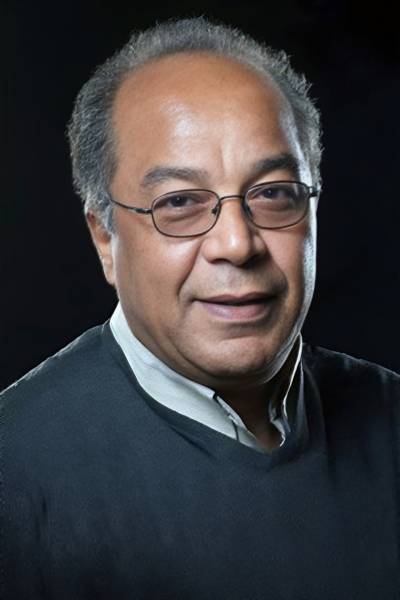Fiche Personne
Théâtre
Cinéma/TV
Cheikh Djemaï
Réalisateur/trice, Acteur/trice, Scénariste
(Homme)
Algérie, France
Français
Cheikh Djemaï, né en 1954 près de Maghnia en Algérie, est un réalisateur franco-algérien. Venu avec sa famille rejoindre un père passé un temps par les mines du Nord, Cheikh Djemaï grandit après 1959 au bidonville de la rue des Prés puis à la cité de transit André Doucet dite « cité vieille », tous deux situés au quartier du Chemin de l’île.
Cheikh Djemaï sort du logement exceptionnel dans les années 1970, meurtri par les brimades et les orientations forcées dans les écoles Voltaire et au collège Joliot Curie où il est orienté en CEP moulage. Il se rapproche du théâtre (comme éclairagiste au théâtre des Amandiers), de la culture et de la politique grâce à son frère aîné, lui-même lié aux militants chrétiens investis auprès des immigrés à Nanterre. Pendant ces dix années passées au théâtre des Amandiers de Nanterre, il côtoie les plus grands : compagnons de route de Pierre Debauche, Antoine Vitez, Patrice Chéreau, Roger Planchon, Daniel Mesguish, à Wajda. Peu à peu, il se lance dans une carrière de réalisateur, de fiction puis de documentaire. Toujours Nanterrien, son regard reste intimement lié aux histoires de l’immigration. Après avoir collaboré à diverses émissions ainsi qu'à des magazines télévisés, il se lance dans la réalisation de films plus personnels.
Il réalise : "La Nuit Du Doute" (une fiction) drame des jeunes-filles maghrébines ; "Mémoire Du Voyage", document percutant et émouvant sur la communauté tzigane ; "Paroles D'Exil", bouleversant témoignage sur ceux qui ont du fuir le terrorisme en Algérie ; "Les Charbonniers De Surface" (1996), sur un métier d'un autre temps ; "Frantz Fanon" (2001), dans lequel il restitue l'itinéraire de ce médecin-psychiatre d'origine antillaise, cet écrivain, ce visionnaire, ce militant, qui après avoir combattu auprès des forces de la France libre pendant la seconde guerre mondiale, s'engage corps et âme dans la bataille de la décolonisation et de l'indépendance de l'Algérie ; "Le Onze Du FLN", dans lequel il évoque l'épopée des footballeurs vedettes algériens qui ont quitté en 1958 leurs clubs français pour créer la première équipe algérienne en pleine guerre d'Algérie dans "Anonymes" (1998).
Cheikh Djemaï nous ouvre les yeux sur une réalité souvent occultée, et perpétue la mémoire de femmes et d'hommes dont le souvenir doit rester vivant et intact. Ce réalisateur exigeant, Homme de colère et de passion, fait souffler comme un vent d'espérance et donne un nouveau sens au mot solidarité. Cheikh Djemaï permet de nous sentir vivant, combattant. Il encourage à lutter contre l'amnésie comme dans son film "Nanterre, Une Mémoire En Miroir" (2006) et nous rappelle notre faculté d'indignation. En 2018 il sort le documentaire "La Bataille d'Alger, l'empreinte"; dans ce film Cheikh Djemaï revient sur la genèse du long métrage de Gillo Pontecorvo, La Bataille d’Alger (1965). Par le biais d’images d’archives, d’extraits du film et d’interviews de personnalités, le cinéaste retrace le parcours d’une œuvre majeure – des événements de la Casbah algéroise (1956-1957) à la remise du Lion d’Or entrainant la colère de la délégation française à Venise – qui a laissé son empreinte autant dans l’histoire du cinéma que dans celle de l’Algérie.
<iframe width="560" height="315" src="https://www.youtube.com/embed/w5cdQAThQI8?si=Hg-YYQYBEslTn2xj" title="YouTube video player" frameborder="0" allow="accelerometer; autoplay; clipboard-write; encrypted-media; gyroscope; picture-in-picture; web-share" allowfullscreen></iframe>
http://www.imdb.com/name/nm1671968
Cheikh Djemaï sort du logement exceptionnel dans les années 1970, meurtri par les brimades et les orientations forcées dans les écoles Voltaire et au collège Joliot Curie où il est orienté en CEP moulage. Il se rapproche du théâtre (comme éclairagiste au théâtre des Amandiers), de la culture et de la politique grâce à son frère aîné, lui-même lié aux militants chrétiens investis auprès des immigrés à Nanterre. Pendant ces dix années passées au théâtre des Amandiers de Nanterre, il côtoie les plus grands : compagnons de route de Pierre Debauche, Antoine Vitez, Patrice Chéreau, Roger Planchon, Daniel Mesguish, à Wajda. Peu à peu, il se lance dans une carrière de réalisateur, de fiction puis de documentaire. Toujours Nanterrien, son regard reste intimement lié aux histoires de l’immigration. Après avoir collaboré à diverses émissions ainsi qu'à des magazines télévisés, il se lance dans la réalisation de films plus personnels.
Il réalise : "La Nuit Du Doute" (une fiction) drame des jeunes-filles maghrébines ; "Mémoire Du Voyage", document percutant et émouvant sur la communauté tzigane ; "Paroles D'Exil", bouleversant témoignage sur ceux qui ont du fuir le terrorisme en Algérie ; "Les Charbonniers De Surface" (1996), sur un métier d'un autre temps ; "Frantz Fanon" (2001), dans lequel il restitue l'itinéraire de ce médecin-psychiatre d'origine antillaise, cet écrivain, ce visionnaire, ce militant, qui après avoir combattu auprès des forces de la France libre pendant la seconde guerre mondiale, s'engage corps et âme dans la bataille de la décolonisation et de l'indépendance de l'Algérie ; "Le Onze Du FLN", dans lequel il évoque l'épopée des footballeurs vedettes algériens qui ont quitté en 1958 leurs clubs français pour créer la première équipe algérienne en pleine guerre d'Algérie dans "Anonymes" (1998).
Cheikh Djemaï nous ouvre les yeux sur une réalité souvent occultée, et perpétue la mémoire de femmes et d'hommes dont le souvenir doit rester vivant et intact. Ce réalisateur exigeant, Homme de colère et de passion, fait souffler comme un vent d'espérance et donne un nouveau sens au mot solidarité. Cheikh Djemaï permet de nous sentir vivant, combattant. Il encourage à lutter contre l'amnésie comme dans son film "Nanterre, Une Mémoire En Miroir" (2006) et nous rappelle notre faculté d'indignation. En 2018 il sort le documentaire "La Bataille d'Alger, l'empreinte"; dans ce film Cheikh Djemaï revient sur la genèse du long métrage de Gillo Pontecorvo, La Bataille d’Alger (1965). Par le biais d’images d’archives, d’extraits du film et d’interviews de personnalités, le cinéaste retrace le parcours d’une œuvre majeure – des événements de la Casbah algéroise (1956-1957) à la remise du Lion d’Or entrainant la colère de la délégation française à Venise – qui a laissé son empreinte autant dans l’histoire du cinéma que dans celle de l’Algérie.
<iframe width="560" height="315" src="https://www.youtube.com/embed/w5cdQAThQI8?si=Hg-YYQYBEslTn2xj" title="YouTube video player" frameborder="0" allow="accelerometer; autoplay; clipboard-write; encrypted-media; gyroscope; picture-in-picture; web-share" allowfullscreen></iframe>
http://www.imdb.com/name/nm1671968
English
Cheikh Djemaï, born in 1954 near Maghnia in Algeria, is a Franco-Algerian director. Coming with his family to join a father who spent a time in the mines of the North, Cheikh Djemaï grew up after 1959 in the shanty town of rue des Prés then in the André Doucet transit city known as the “old city”, both located in the Chemin de the island.
Cheikh Djemaï left exceptional housing in the 1970s, bruised by bullying and forced orientations in the Voltaire schools and at the Joliot Curie college where he was oriented in CEP molding. He became closer to theater (as a lighting designer at the Théâtre des Amandiers), culture and politics thanks to his older brother, himself linked to Christian activists working with immigrants in Nanterre. During these ten years spent at the Amandiers theater in Nanterre, he rubbed shoulders with the greatest: traveling companions of Pierre Debauche, Antoine Vitez, Patrice Chéreau, Roger Planchon, Daniel Mesguish, at Wajda. Little by little, he embarked on a career as a director, first of fiction and then of documentary. Always from Nanter, his outlook remains closely linked to the stories of immigration. After collaborating on various shows as well as television magazines, he began making more personal films.
He directs: “La Nuit Du Doute” (a fiction) drama about young North African girls; “Mémoire Du Voyage”, a powerful and moving document on the Gypsy community; “Paroles D’Exil”, a moving testimony about those who had to flee terrorism in Algeria; “Les Charbonniers De Surface” (1996), about a profession from another time; "Frantz Fanon" (2001), in which he recounts the journey of this doctor-psychiatrist of West Indian origin, this writer, this visionary, this activist, who after having fought with the forces of Free France during the Second World War , commits body and soul to the battle for the decolonization and independence of Algeria; “Le Onze Du FLN”, in which he evokes the epic tale of the Algerian star footballers who left their French clubs in 1958 to create the first Algerian team in the middle of the Algerian war in “Anonymes” (1998).
Cheikh Djemaï opens our eyes to a reality that is often hidden, and perpetuates the memory of women and men whose memory must remain alive and intact. This demanding director, a man of anger and passion, blows like a wind of hope and gives new meaning to the word solidarity. Cheikh Djemaï makes us feel alive, fighting. He encourages us to fight against amnesia as in his film “Nanterre, Une Mémoire En Miroir” (2006) and reminds us of our faculty of indignation. In 2018 he released the documentary “The Battle of Algiers, the Footprint”; in this film Cheikh Djemaï returns to the genesis of Gillo Pontecorvo's feature film, The Battle of Algiers (1965). Through archive images, extracts from the film and interviews with personalities, the filmmaker retraces the journey of a major work – from the events of the Algiers Casbah (1956-1957) to the presentation of the Lion of 'Or causing the anger of the French delegation in Venice – which left its mark as much in the history of cinema as in that of Algeria.
http://www.imdb.com/name/nm1671968
Cheikh Djemaï left exceptional housing in the 1970s, bruised by bullying and forced orientations in the Voltaire schools and at the Joliot Curie college where he was oriented in CEP molding. He became closer to theater (as a lighting designer at the Théâtre des Amandiers), culture and politics thanks to his older brother, himself linked to Christian activists working with immigrants in Nanterre. During these ten years spent at the Amandiers theater in Nanterre, he rubbed shoulders with the greatest: traveling companions of Pierre Debauche, Antoine Vitez, Patrice Chéreau, Roger Planchon, Daniel Mesguish, at Wajda. Little by little, he embarked on a career as a director, first of fiction and then of documentary. Always from Nanter, his outlook remains closely linked to the stories of immigration. After collaborating on various shows as well as television magazines, he began making more personal films.
He directs: “La Nuit Du Doute” (a fiction) drama about young North African girls; “Mémoire Du Voyage”, a powerful and moving document on the Gypsy community; “Paroles D’Exil”, a moving testimony about those who had to flee terrorism in Algeria; “Les Charbonniers De Surface” (1996), about a profession from another time; "Frantz Fanon" (2001), in which he recounts the journey of this doctor-psychiatrist of West Indian origin, this writer, this visionary, this activist, who after having fought with the forces of Free France during the Second World War , commits body and soul to the battle for the decolonization and independence of Algeria; “Le Onze Du FLN”, in which he evokes the epic tale of the Algerian star footballers who left their French clubs in 1958 to create the first Algerian team in the middle of the Algerian war in “Anonymes” (1998).
Cheikh Djemaï opens our eyes to a reality that is often hidden, and perpetuates the memory of women and men whose memory must remain alive and intact. This demanding director, a man of anger and passion, blows like a wind of hope and gives new meaning to the word solidarity. Cheikh Djemaï makes us feel alive, fighting. He encourages us to fight against amnesia as in his film “Nanterre, Une Mémoire En Miroir” (2006) and reminds us of our faculty of indignation. In 2018 he released the documentary “The Battle of Algiers, the Footprint”; in this film Cheikh Djemaï returns to the genesis of Gillo Pontecorvo's feature film, The Battle of Algiers (1965). Through archive images, extracts from the film and interviews with personalities, the filmmaker retraces the journey of a major work – from the events of the Algiers Casbah (1956-1957) to the presentation of the Lion of 'Or causing the anger of the French delegation in Venice – which left its mark as much in the history of cinema as in that of Algeria.
http://www.imdb.com/name/nm1671968
Films(s)
-
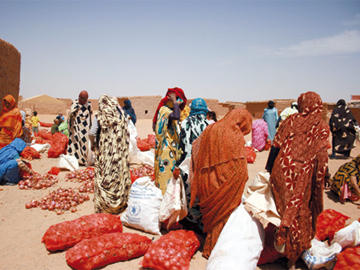 Une République en exilMoyen-métrage – 2008Ce documentaire met en lumière la réalité qu’endure le peuple Sahraouis, exilé depuis trois décennies, loin de son pays, obligé de survivre dans des conditions extrêmes et oubliés par l’actualité. Un regard de l’intérieu…Cheikh Djemaï est lié(e) à ce film en tant que réalisateur/trice
Une République en exilMoyen-métrage – 2008Ce documentaire met en lumière la réalité qu’endure le peuple Sahraouis, exilé depuis trois décennies, loin de son pays, obligé de survivre dans des conditions extrêmes et oubliés par l’actualité. Un regard de l’intérieu…Cheikh Djemaï est lié(e) à ce film en tant que réalisateur/trice -
 Nanterre, une mémoire en miroirMoyen-métrage – 2006Ce film raconte l'histoire de la première génération d'Algérien(ne)s qui vivaient dans les bidonvilles installés sur les terrains vagues de Nanterre. C'est dans ces bidonvil…Cheikh Djemaï est lié(e) à ce film en tant que réalisateur/trice
Nanterre, une mémoire en miroirMoyen-métrage – 2006Ce film raconte l'histoire de la première génération d'Algérien(ne)s qui vivaient dans les bidonvilles installés sur les terrains vagues de Nanterre. C'est dans ces bidonvil…Cheikh Djemaï est lié(e) à ce film en tant que réalisateur/trice -
 Anonymes [dir. Cheikh Djemaï]Moyen-métrage – 1998Adja était cantinière et Ahmed, ouvrier, est devenu chauffeur de taxi. Ils racontent leur histoire parmi tant d’autres et leur vie quotidienne à Belleville.Cheikh Djemaï est lié(e) à ce film en tant que réalisateur/trice
Anonymes [dir. Cheikh Djemaï]Moyen-métrage – 1998Adja était cantinière et Ahmed, ouvrier, est devenu chauffeur de taxi. Ils racontent leur histoire parmi tant d’autres et leur vie quotidienne à Belleville.Cheikh Djemaï est lié(e) à ce film en tant que réalisateur/trice -
 Charbonniers de surface (Les)Moyen-métrage – 1996Des Espagnols et des Portugais ont travaillé dans les forêts de Dordogne pour extraire les ressources minières. Ils sont remplacés par des Marocains et aujourd'hui après des ann&eacu…Cheikh Djemaï est lié(e) à ce film en tant que réalisateur/trice
Charbonniers de surface (Les)Moyen-métrage – 1996Des Espagnols et des Portugais ont travaillé dans les forêts de Dordogne pour extraire les ressources minières. Ils sont remplacés par des Marocains et aujourd'hui après des ann&eacu…Cheikh Djemaï est lié(e) à ce film en tant que réalisateur/trice -
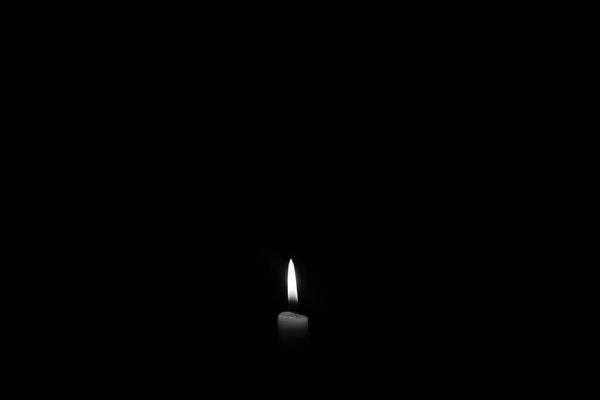 Paroles d’exilCourt-métrage – 1995Les témoignages de cinq Algériens qui, en s'exilant en France, cette terre des droits de l'Homme, y ont perdu leurs illusions et leur identité.Cheikh Djemaï est lié(e) à ce film en tant que réalisateur/trice
Paroles d’exilCourt-métrage – 1995Les témoignages de cinq Algériens qui, en s'exilant en France, cette terre des droits de l'Homme, y ont perdu leurs illusions et leur identité.Cheikh Djemaï est lié(e) à ce film en tant que réalisateur/trice -
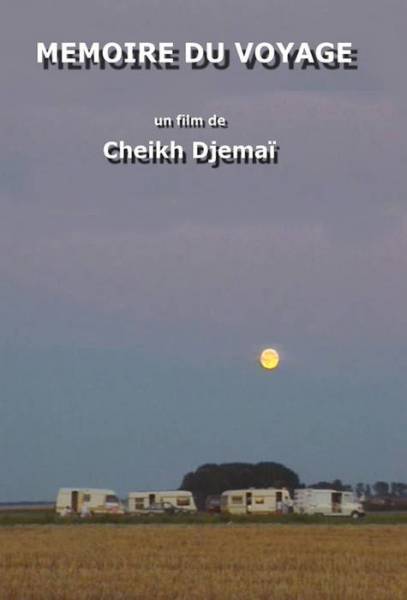 Mémoire du voyageMoyen-métrage – 1992Ces Français sont appelés les "gens du voyage". Qu'ils soient Gitans, Manouches ou Tziganes, ils restent mal connus et inspirent souvent méfiance et rejet. Par des portraits et des t&ea…Cheikh Djemaï est lié(e) à ce film en tant que réalisateur/trice
Mémoire du voyageMoyen-métrage – 1992Ces Français sont appelés les "gens du voyage". Qu'ils soient Gitans, Manouches ou Tziganes, ils restent mal connus et inspirent souvent méfiance et rejet. Par des portraits et des t&ea…Cheikh Djemaï est lié(e) à ce film en tant que réalisateur/trice -
 Nuit du doute (La)Court-métrage – 1989Le désarroi des Maghrébins vivant en France, en particulier les filles. Nées pour la plupart en France et fréquentant les écoles françaises, elles vivent deux réalit&eacut…Cheikh Djemaï est lié(e) à ce film en tant que réalisateur/trice
Nuit du doute (La)Court-métrage – 1989Le désarroi des Maghrébins vivant en France, en particulier les filles. Nées pour la plupart en France et fréquentant les écoles françaises, elles vivent deux réalit&eacut…Cheikh Djemaï est lié(e) à ce film en tant que réalisateur/trice -
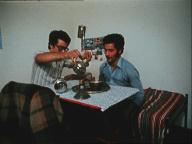 Voyage en capitalLong-métrage – 1978Un ouvrier immigré et une jeune étudiante "beur" d'origine algérienne se rencontrent par hasard, se perdent de vue puis se retrouvent. Chacun d'eux évolue dans un univers dif…Cheikh Djemaï est lié(e) à ce film en tant que acteur/trice
Voyage en capitalLong-métrage – 1978Un ouvrier immigré et une jeune étudiante "beur" d'origine algérienne se rencontrent par hasard, se perdent de vue puis se retrouvent. Chacun d'eux évolue dans un univers dif…Cheikh Djemaï est lié(e) à ce film en tant que acteur/trice -
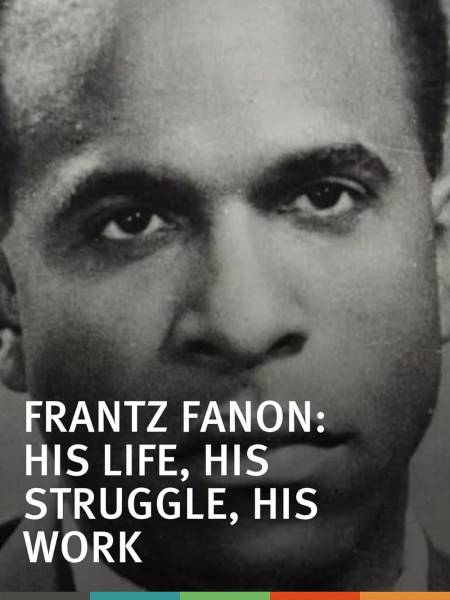 Frantz Fanon, une vie, un combat, une oeuvreMoyen-métrage – 0« Frantz Fanon, une vie, un combat, une oeuvre »est l’évocation d’une vie aussi brève que dense. Une rencontre avec une pensée fulgurante, celle de Frantz Fanon, médecin psychiatre, d’origine antillaise, qui va penser l’al…Cheikh Djemaï est lié(e) à ce film en tant que réalisateur/trice
Frantz Fanon, une vie, un combat, une oeuvreMoyen-métrage – 0« Frantz Fanon, une vie, un combat, une oeuvre »est l’évocation d’une vie aussi brève que dense. Une rencontre avec une pensée fulgurante, celle de Frantz Fanon, médecin psychiatre, d’origine antillaise, qui va penser l’al…Cheikh Djemaï est lié(e) à ce film en tant que réalisateur/trice -
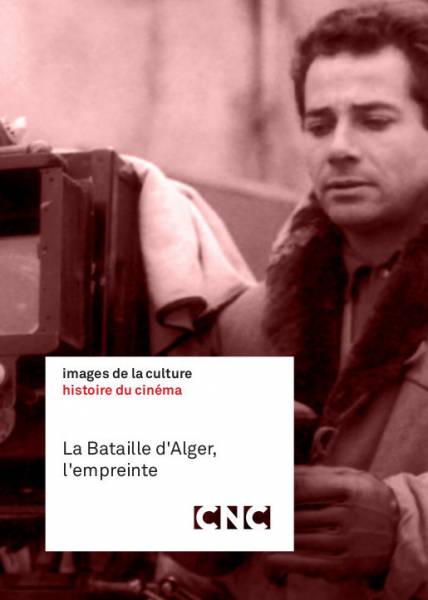 La Bataille d’Alger, l’empreinteMoyen-métrage – 0Cheikh Djemaï revient sur la genèse du long métrage de Gillo Pontecorvo, La Bataille d’Alger (1965). Par le biais d’images d’archives, d’extraits du film et d’interviews d…Cheikh Djemaï est lié(e) à ce film en tant que réalisateur/trice
La Bataille d’Alger, l’empreinteMoyen-métrage – 0Cheikh Djemaï revient sur la genèse du long métrage de Gillo Pontecorvo, La Bataille d’Alger (1965). Par le biais d’images d’archives, d’extraits du film et d’interviews d…Cheikh Djemaï est lié(e) à ce film en tant que réalisateur/trice
Partager :



